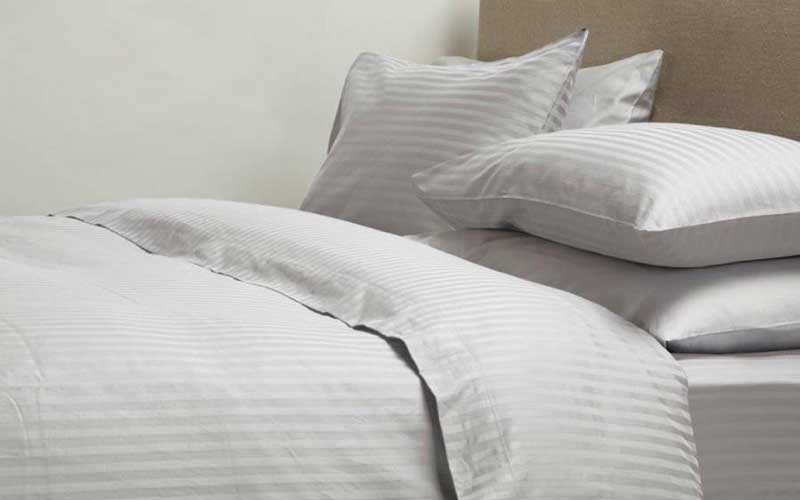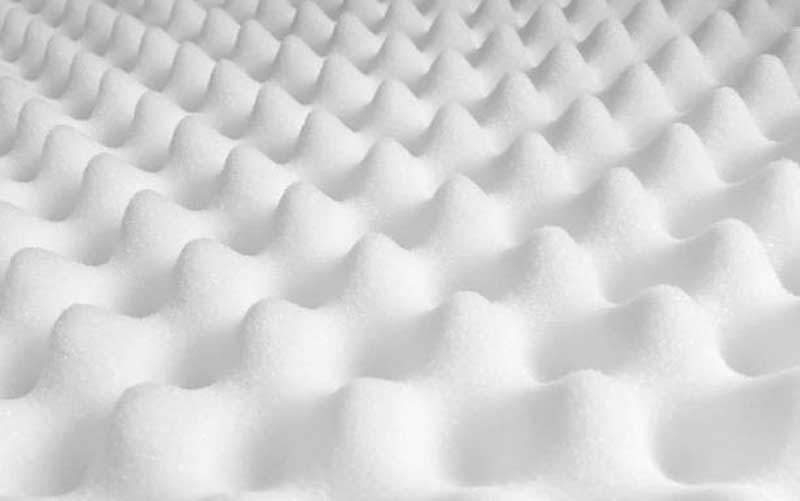Are you considering buying a memory foam mattress? Because they can provide excellent contouring properties which alleviate pressure points, have excellent motion isolation so that couples can sleep undisturbed, and even reduce back pain by promoting better posture and muscular relaxation.
However, you might be wondering if, due to its synthetic design, it can make you overheat and sweat during the night.
If that’s the case, you are at the right place. In today’s article, we’ll be discussing can a memory foam mattress cause night sweats, what else can cause them, and how can you prevent them.
Do memory foam mattresses make you sweat?
Memory foam materials can retain and reflect your body heat, impede airflow, and contour too closely to your skin.

However, that doesn’t mean that everyone will sleep hot or experience night sweats on a memory foam bed. Due to potential variations in health conditions, medications, and different body types, some individuals might be affected.
The good news is that not all mattresses are the same. Some memory foam designs might make you sweat more than others. To learn more about the different types of memory foam, check our guide on it.
Overall, some memory foam products have an issue retaining body heat because this is a rather dense mattress material, which can often lack interconnected air channels, leading to your body overheating. Once the mattress absorbs the heat, it’s not easy to work its way out. Thus the occurring issue.
So, to put it simply, yes, some memory foam options can cause nights sweats, but there are various things you can do to prevent that. To find out what they are, continue reading.

What’s the solution to memory foam mattresses and night sweats?
The structure of a memory foam mattress is often the reason it retains too much heat. Still, some memory foam beds overheat because they’re paired with warm bedding or an incorrect mattress foundation.
So, let’s look at all the common reasons why this material can retain heat and discuss the possible solutions:
Foundation
Sleeping on the wrong foundation can keep heat trapped in your mattress. For example, if you’re using a solid surface with no slats like a solid plywood board, heat will be left with no way to escape through the bottom of your mattress. That’s also one of the reasons why we don’t recommend sleeping without a bed base (on the floor) at all.
The best foundation for a traditional mattress comes with spaces to let air flow through the bottom and clear out the accumulated heat. Overall, the LightSleeper team recommends a foundation with slats no more than 7 cm apart and at least 1cm thick.
Bedding
Your bedding is what adds an extra layer between your mattress and your body in order for you to stay cool while sleeping. Picking breathable mattress covers, sheets, blankets, pillows, and even cooling mattress toppers will aid in you getting a good night’s sleep. Let’s take a closer look at the different types of bedding and how each one can help you with heat retention.
Mattress Protectors
A mattress protector doesn’t only prevent your bed from getting nasty spills and stains, but it can also keep your memory foam mattress cooler. Typically high-quality mattress covers are made with breathable materials like cotton or even wool that usually help to wick away moisture.
Sheets, Blankets & Duvets
If you are trying to find a solution for your night sweats, you should definitely stay away from sheets that trap body heat, such as polyester or silk. Your best bet will be fabrics that create cooling sheets made with materials such as cotton, linen, or bamboo. Generally speaking, sheets with a lower thread count allow for better airflow, which keeps you cooler, promoting better sleep even on hot nights.
To sum it up, if you’re a hot sleeper, avoid insulating comforters and duvets. The best decision you can make is to sleep with a light blanket or even a flat sheet.

Pillows
There has been a myth that we lose most of our body heat through our heads for many years, but the right pillow can help absorb and disperse that unneeded body heat. If you’re looking for cooling pillows, options such as shredded memory foam, buckwheat hulls, or microbeads allow for more air circulation.
Mattress Toppers & Pads
A lot of memory foam toppers and mattress pads contain cooling gels or are made with cooling fibres to absorb body heat better.
For example, you can try an electric mattress pad with cooling options if you want to get techy because most of them let you control the temperature with a dial or an easy-to-use mobile app. However, the downside to electric pads is their cost, which can add up to a few hundred dollars yearly.
But, if you aren’t keen on spending more on electricity, we recommend you find a cooling option such as a wool mattress topper that has excellent moisture-wicking capabilities.
Get a new mattress
Finally, even though it’s not the most cost-effective solution, if you still have difficulty sleeping on your memory foam mattress, you might want to consider buying a new one. You can view a few different options to find the one that works best for your specific needs and personal preferences.
A cooling gel-infused foam mattress comes with features that prevent overheating due to the added gel memory foam or many air channels. Additives to the foam-like charcoal, copper, or graphite can also absorb or wick away body heat.
All the pros that come with memory foam aren’t easily replaceable, which is why you can purchase a gel mattress that has a cooling built-in layer that will prevent your body from overheating at night.

Bottom line
Memory foam mattresses are designed to support you while you sleep as the foam moulds to the unique contours of your body shape. In order for this to happen, the surface of the memory foam needs your body heat to warm it up, as it will soften in reaction to warmth.
Overall this mattress type is one of the most comfortable sleeping surfaces you can bring into your bedroom. There are many options on the market today, and all offer different features that you might not even consider heat retention. You can even see what we consider some of the best memory foam mattresses in the UK today.
Generally speaking, to prevent your body from overheating, you want to keep your room at around 18 degrees celsius, which is the optimal sleeping temperature for a good night’s sleep.
Now it’s our turn to hear from you if any questions regarding the subject were left unanswered. If you want to share some information, we would gladly hear about it in the comments below.

